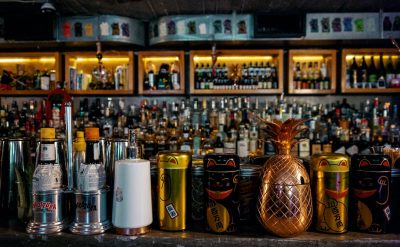Is alcohol prohibition a solution to curb drinking and deaths caused due to consumption of illicit liquor?

Is alcohol prohibition a solution to curb drinking and deaths caused due to consumption of illicit liquor? The number of debates over this issue is uncountable. Some people think of
prohibition as a permanent solution to the different problems of society while others oppose it. Whenever there is a debate over alcohol prohibition law, the right to freedom is
also discussed because it allows us to eat and drink anything (according to the law and unless and until it doesn’t hurt anyone’s religious sentiments) we like and people must have
that freedom.
In my opinion, prohibition has been more of a drawback than a benefit. As we see in Bihar, imposing an alcohol prohibition law may have helped Nitish Kumar position it as a good
policy but it doesn’t change the fact that many people in the state die due to the consumption of spurious liquor.
According to The Indian Express report, over 200 hooch deaths in Bihar have occurred in five years since 2016. The prohibition law can worsen the lives of families of alcohol addicts,
instead of making them better off. The unavailability of quality liquor from authorized manufacturers forces people (mostly addicts) to consume spurious or illicit liquor leading to
death. Here we can also take a look at America’s history. In the period from 1920 to 1933, America had once experimented with prohibition law. American historian, Thomas Coffey, in his
book, ‘The Long Thirst: Prohibition in America’, noted that “the death rate from poisoned liquor was appallingly high throughout the country. In 1925 the national death toll was 4,154 as compared to 1,064 in 1920.”
Now coming to the economic aspect of the law, the demand for alcohol is inelastic. It means that consumers’ buying habits remain unchanged even after the prices go up or down. Whatever the price of alcohol is, we will always find a crowd at every model shop. So, when a law is established prohibiting the manufacturing or sale of liquor, it impacts the supply side of the market and hardly influences the demand side. This leads to alcohol smuggling and black marketing and the price of it rises too. The prohibition also damages the revenue of the state and it snatches away the jobs and business opportunities for the people while on the other hand, it can lead to huge profits for the illegal market stakeholders. Government or private, liquor vends create huge job opportunities
The Indian alcobev industry, employs 1.5 million people and has an estimated market size of USD 52.5 billion (2020), and is the ninth-largest in the world. It is projected to grow by 6.8%
between 2020 and 2023, according to the Indian Council on International Economic Relations (ICRIER). So, what can we do to curb drinking? In my opinion, the only way is to create awareness and educate people about its negative impact on health. The government should work towards
something that would influence the demand side of the consumer. But this could also leave a negative impact from an economic perspective. Thus, rather than promoting a ban on liquor, making people more aware of responsible drinking habits will be more beneficial.
Nadeem Anwar, Associate Account Director, VeKommunicate
